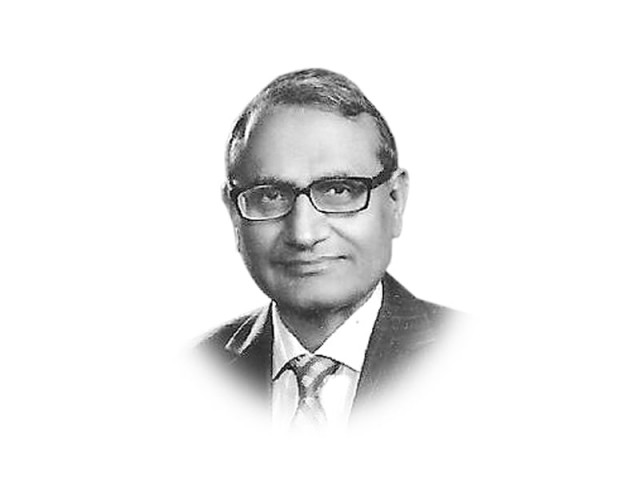The economy in 2014
The first full year shows that the government lacks an economic strategy

The year started with the news coming in January of a surplus on the external accounts in December, signalling the end of the free fall of the rupee by 8.2 per cent in July-November 2013. The finance minister’s frantic efforts to mobilise reserves by bringing in $1.5 billion of Saudi money in February and March 2014, $2 billion of the Eurobonds receipts in April, $1 billion from the World Bank in May, 3G/4G auction and the sale of remaining government shares of UBL divesture led to the rise of the rupee by 9.8 per cent in December 2013-June 2014. So long as the country can borrow, which it could with an IMF programme in place and remittances remaining steady, fire-fighting is not beyond the realm of possibility. The source of these frequent fires lies in poor export performance, ballooning imports and the failure to revive growth and investment. Growth was in the range 3.5 to four per cent and investment, the main driver of growth, has actually declined. Large-scale manufacturing growth in 2013-14 was 3.5 per cent, not 5.3 per cent assumed earlier. The largest contribution to growth was made by the wholesale and retail trade. So much for the economic revival.

The election promises and the speedy action on the circular debt raised hopes that the government was dead serious about the energy crisis. However, the first full year shows that the government lacks a strategy. In the short to medium term, it could have focused on energy conservation and fuller utilisation of existing capacity. Improved governance to reduce theft and pilferage and investment in transmission to curtail losses would have done it. But the start has been made by making or seeking investment in creating new capacity. As the IMF programme imposes subsidy reduction, the consumer pays more without much relief in load-shedding. Despite reducing subsidies, circular debt has piled up again.
The privatisation policy has focused on selling the shares of profitable entities. The loss-making units are neither being restructured to make them profitable, nor is there any effort to sell them off. Indecisiveness prevails in the face of the breakdown of the democratic consensus on privatisation. All opposition parties and most allies are opposed to privatisation. Dwindling employment opportunities in a slow-moving economy are mobilising workers against privatisation. It is time to end this uncertainty and let the public sector play a productive role in the economy.
Although the average inflation for January-November 2014 was still high at 7.5 per cent, there is rapid improvement since September in all price indicators. In November 2014, the Consumer Price Index, food inflation and the Wholesale Price Index rose by four, 2.1 and 0.02 per cent, while the Sensitive Price Indicator declined by 0.3 per cent. All these indices were in double-digits in November 2013. The achievement is attributable to falling prices of palm oil and oil. A government borrowing heavily and taxing timidly caved in again to the dharna pressures to adopt a policy of appeasement to pass on the benefit to the consumers. A fiscal deficit of around six per cent may not be an unsafe prediction. This is exclusive of the expenditures necessary to mount a serious counterterrorism strategy.
The economic message of 2014 is that the government wakes up when a challenge presents itself. Otherwise, it lives in the 1990s.
Published in The Express Tribune, December 26th, 2014.
Like Opinion & Editorial on Facebook, follow @ETOpEd on Twitter to receive all updates on all our daily pieces.



















COMMENTS
Comments are moderated and generally will be posted if they are on-topic and not abusive.
For more information, please see our Comments FAQ